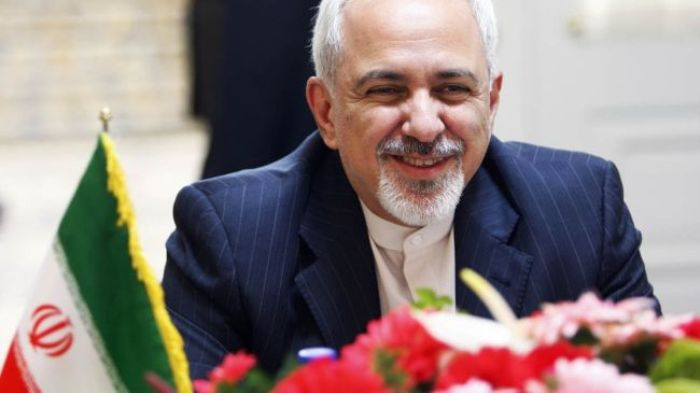Why Javad Zarif Deserves the Nobel Peace Prize

Hessam Emami
Ali Attaran
Two days before its official announcement, question looms on which figure(s) or organization is going to receive this year’s ‘Nobels fredspris’.
Stockholm International Peace Research Institute (SIPRI), an acclaimed global security think tank, believes it has an answer: Iran’s Foreign Minister Mohammad-Javad Zarif, and his American counterpart John Kerry.
The recommendation is based on the duet’s contribution to record-breaking talks between Iran and world powers over the country’s nuclear program, which led to a landmark agreement, commonly known as the Joint Comprehensive Plan of Action (JCPOA), putting an end to a twelve-year international impasse.
Quite recently came the former Israeli President and Prime Minister Shimon Peres’ posthumous revelation that he had dissuaded sitting Israeli Prime Minister Benjamin Netanyahu from attacking Iran. Though no exact date has been provided, the decision to attack Iran over accusations the country was trying to develop a nuke bomb predated Hassan Rouhani’s presidency. An account given by Business Insider’s Natasha Bertrand sets the date in 2012.
The naked truth is that such a war was inevitable: It would break out as soon as all diplomatic solutions were tried. Israel would be able to instigate an international consensus, as it was for lesser ones reflected in the UN Security Council resolutions, against Iran. And it would drag its supporters into a war that would promptly spread to the whole region, when Iran’s friends came to help.
Even without a war, the oppressive sanctions, by the US, UN, and EU, supposed to hit Iran’s nuclear program, came out to be really crippling but for ordinary Iranian citizens and nationals around the world. Recent figures have demonstrated that every single Iranian citizen has lost approximately one thousand dollars over the four years sanctions were aggravated. Bear in mind that minimum wages in Iran barely exceed $200, which means a household of four with a single breadwinner lost almost half of its income in four years while at the same time suffering from inflation rates above 20 percent. And that was increasingly worsening, to a point that many saw Iran on its way to become a second North Korea, only with more than thirty times its population.
And all these seemed destined for a country that, as history testifies, has not started a war in more than two centuries. That is only part of the reason, we think, Mohammad Javad Zarif is entitled to the world’s most prestigious award on peace.
Back at home, Zarif has fought hardliners who have antagonized the West for decades and blocked any chances of collaboration by conflating ‘negotiations’ and ‘compromise’ with ‘appeasement’ and ‘surrender’. Zarif has gone to unprecedented lengths to break such taboos and put an end to the nuclear standoff, despite the fact that he viewed it as a “manufactured” crisis, and it is now on the Western leaders to show they are ready, not the least through acknowledging his efforts. Zarif’s pursuit of Tehran’s comeback to the global economy has included an agreement with Financial Action Task Force, making it clear that Iran has always been and is ready to combat financing terrorism and money laundering.
The nuclear pact has had its own regional achievements, too. Even before the nuclear deal was sealed, many hoped it could boost Iran’s role in resolving the crises in the region. Now it is time to look back: just consider how the ISIS, the world’s most horrifying terrorist group of the modern age, is losing territory, almost every week, in Syria and Iraq right after Iran was welcome on Syria talks tables. Few unprejudiced observers have failed to see Iran’s positive consultative role in the two war-torn countries. Zarif’s pro-diplomacy approach added momentum to such efforts, hence the coinage of terms such as JCPOA 2.0 (for resolution of internal political differences in Iran) and Regional JCPOA, for tackling painful strife across the Middle East.
Though many cite the nuclear talks as an example to follow in resolving international issues, the JCPOA is not Zarif’s only achievement as the chief of Iran’s foreign policy apparatus. His strategy of patience and détente with regional rivals has paved the way for peaceful solutions to be adopted, too.
Turkey perhaps needed to experience a coup to come to a full understanding of how Iran’s claim to respect democratically elected governments elsewhere in the region could be verified. Saudi Arabia has also shown signals it has realized that Iran is ready to talk, instead of responding to every provocative move. Proof came quite recently, in an OPEC agreement to cut production but exempt Tehran, as it is on its way to take back its share of production. For his part, Zarif has largely shown both self-restraint and respect for Saudi Arabia and its rulers, despite all efforts by Riyadh to drag Iran into further tension. His message of congratulation to Saudi Arabia’s staunchly anti-Iran diplomat, Adel al-Jubeir, on his appointment as foreign minister, brought Zarif a fair amount of criticism inside Iran.
The nuclear deal has even convinced world leaders, unprecedentedly including US President Obama, to renew calls on Israel to join the non-proliferation treaty (NPT). Regardless of how close the Middle East is to such a breakthrough, it is already a significant step toward peace in the region.
The celebration by the Nobel committee of Zarif-Kerry’s efforts toward a more peaceful Middle East, joint or overlapping, will once and for all show Iran that the Western hemisphere is willing to cease its history of blind animosity, a great step in the much-needed trust building between Iran and the West.

